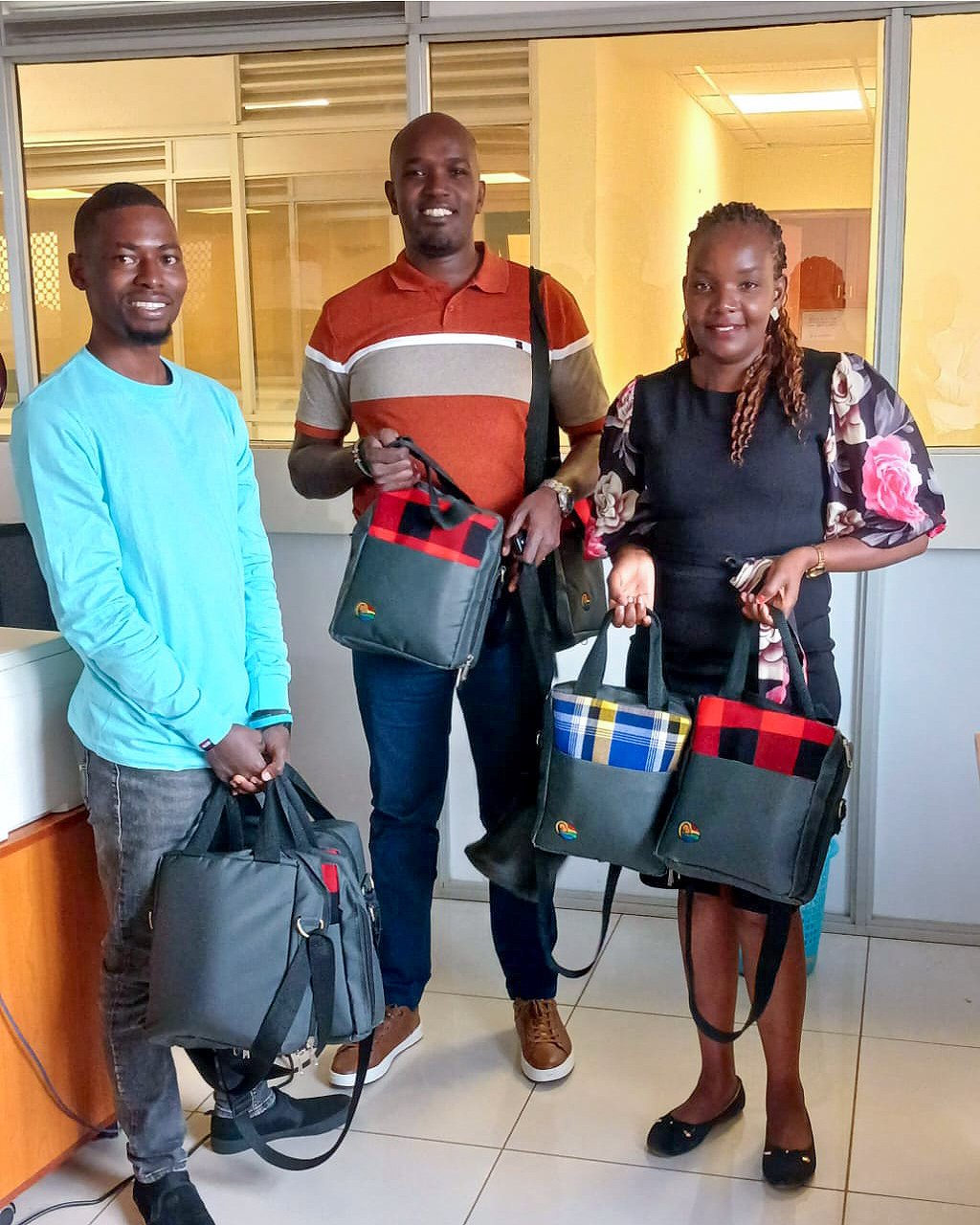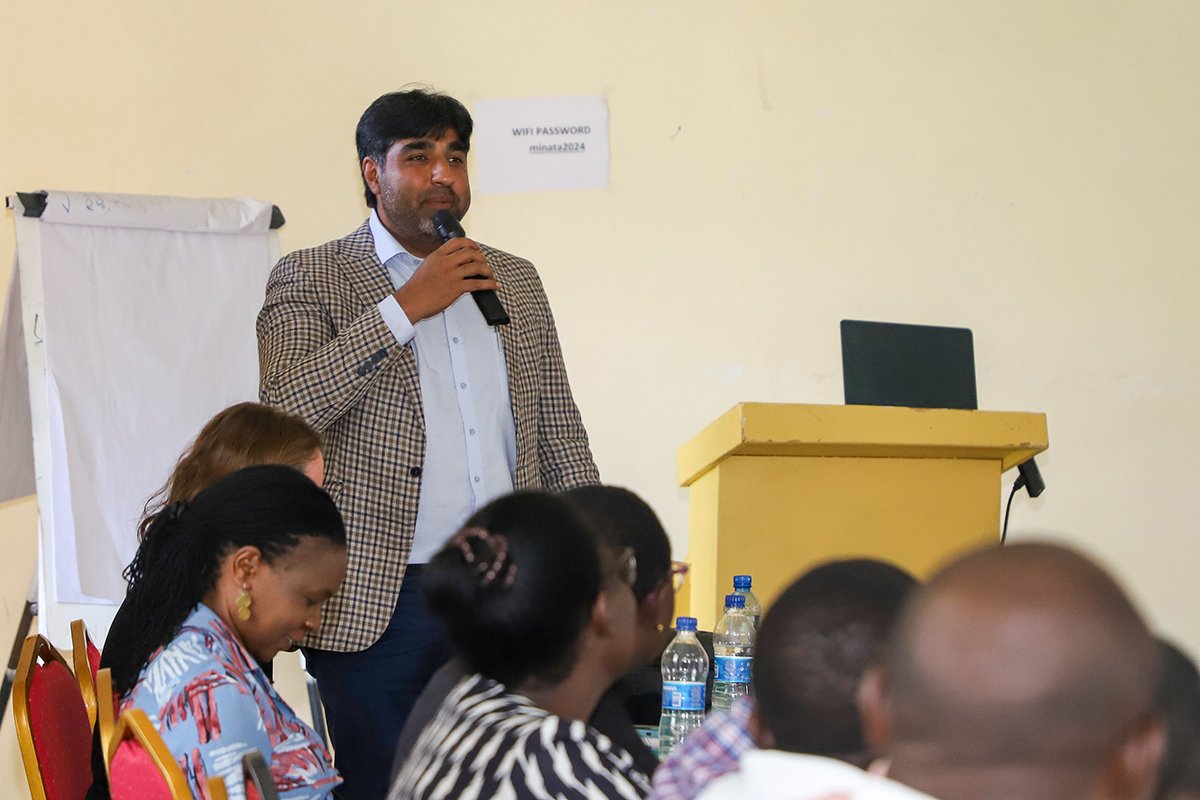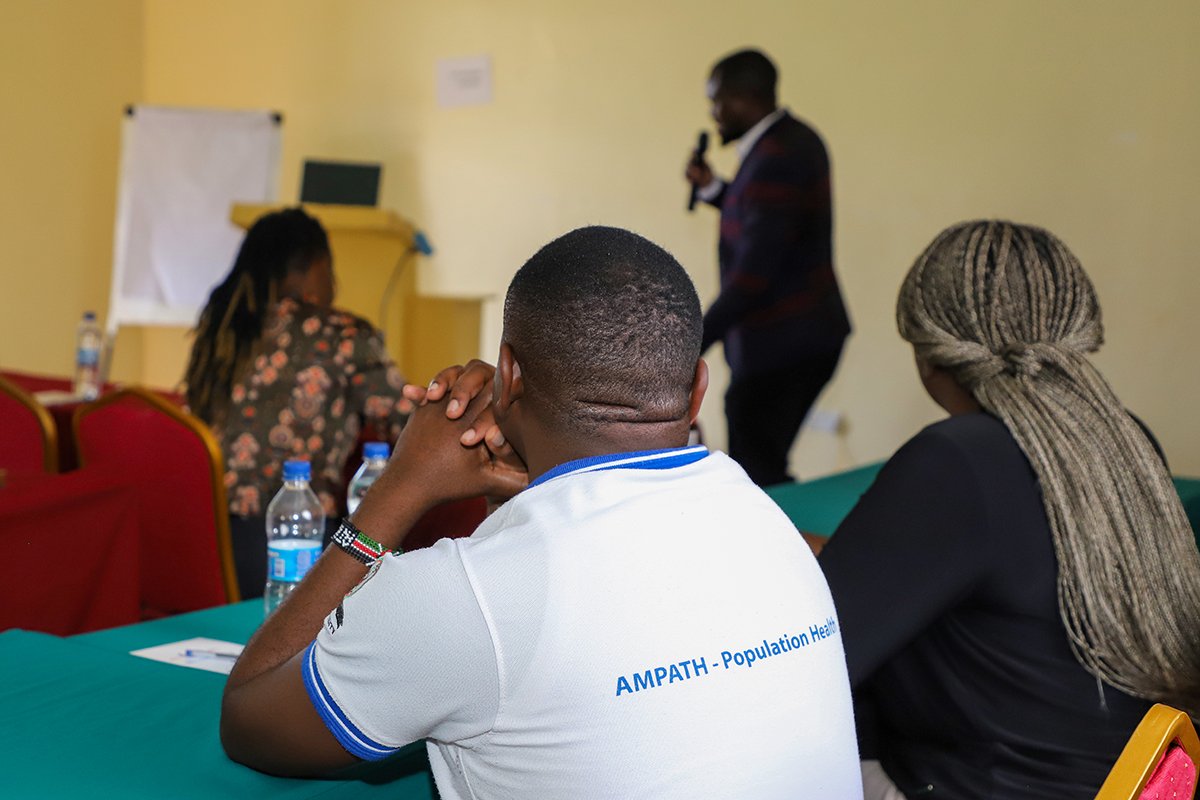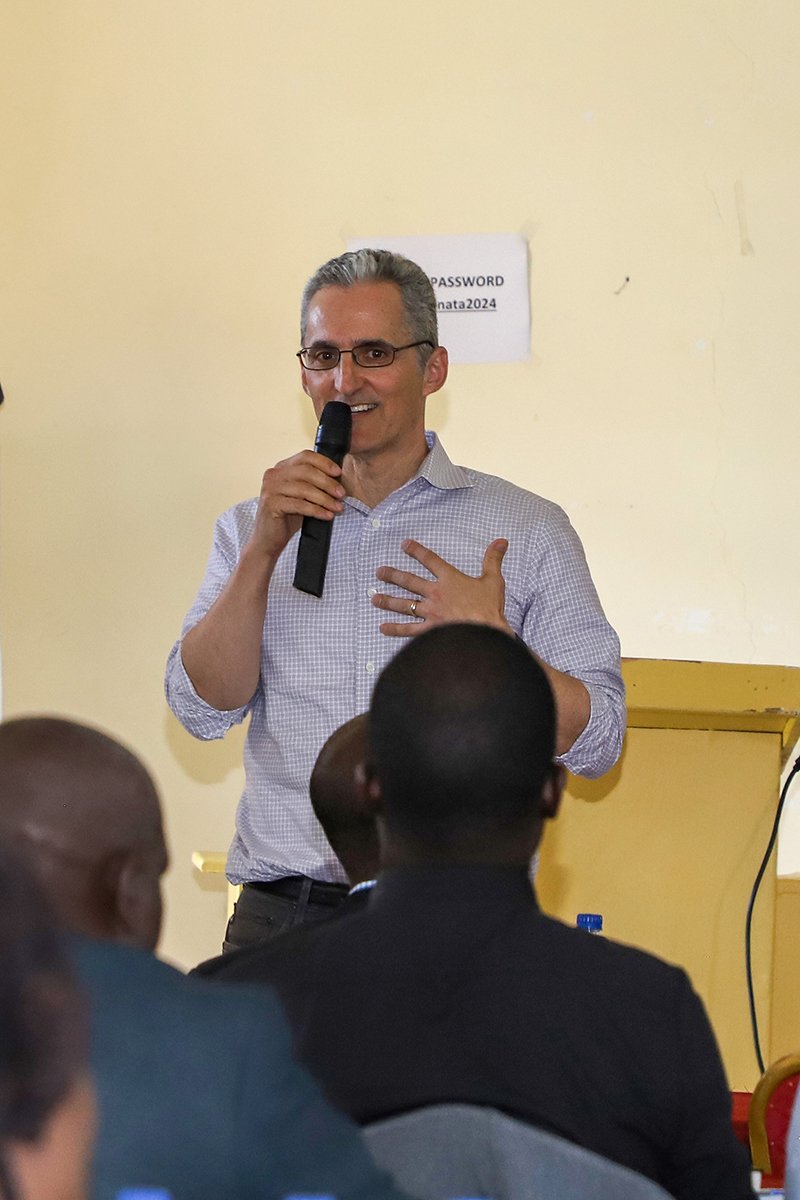AMPATH Leads Point of Care Ultrasound Education and Care Integration in Western Kenya
Healthcare workers learn about the new point-of-care ultrasound devices.
A new 4-year grant to Moi University and AMPATH Kenya will enhance AMPATH’s patient-centered primary care by working with local leadership in six counties in western Kenya through training on and use of portable point-of-care ultrasound (POCUS). Support for the initiative is being provided through a $6.5 million grant supported by Panorama Global, with funding from Gates Foundation, Novartis, Eli Lilly and Company, and Merck through its Merck for Mothers initiative.
Portable point-of-care ultrasound equipment
POCUS is a tool healthcare workers and clinicians use to take quick, real-time images inside the body, often right at a patient's bedside. It helps the healthcare worker answer specific questions, such as whether the heart is pumping properly or if a baby is positioned correctly in the womb. This technology is used alongside the physical exam to give healthcare workers more immediate information to guide treatment decisions.
The project launched on January 13, 2025 with a training of 24 healthcare workers at Webuye County Hospital in Bungoma County which will serve as the first of six POCUS Innovation Centers. This training will be followed by ten sub-county trainings in Bungoma county for 670 healthcare workers. One hundred and ninety probes will be distributed throughout local rural hospital facilities.
“POCUS enables healthcare workers to visualize and diagnose conditions such as heart failure, breast cancer and specific obstetrical complications earlier and improves the chances for better treatment and survival,” said Dr. Hussein Elias, lecturer in the Moi University Department of Family Medicine, Medical Education and Community Health and one of the principal investigators (PIs) for the $6.5 million USD grant.
Diagnostic imaging is not readily available in resource-limited settings in low- and middle-income countries like Kenya, particularly in rural areas like western Kenya. Instead, healthcare workers must rely on their physical exam skills and the patient’s history to make diagnoses. This is not always sufficient in detecting more complex conditions during pregnancy, heart failure and breast cancer, where early detection can drastically improve outcomes. In areas where access to advanced medical facilities is limited, POCUS helps healthcare workers quickly assess conditions–which can lead to faster treatment, reduce the need for patients to travel long distances to hospitals and even save lives by identifying critical issues early–all with a portable, handheld device.
Healthcare workers in Webuye County practice with the new POCUS devices.
“By using POCUS to assess cardiac function, identify specific pregnancy complications, or a suspicious mass in the breast, these healthcare workers can catch life-threatening conditions earlier, improving the chances for earlier treatment and survival,” added Daria Szkwarko, DO, MPH, associate professor in Family Medicine at the Warren Alpert Medical School of Brown University and co-PI on the grant.
In partnership with the Global Ultrasound Institute (GUSI), a leader in POCUS education globally, the project will build upon the Kenyan Ministry of Health's primary care network model to create 'POCUS innovation centers' at primary care network hubs that will train and mentor 4000 healthcare workers in the use of POCUS.
The POCUS units are easy to transport.
This project will commence with rapid implementation in the first year in Bungoma county and will have a specific focus on obstetrical complications in pregnant women and, in the general population, recognizing heart failure in symptomatic patients with diabetes and/or hypertension, and identifying potentially malignant breast masses in patients presenting with breast lumps.
“Over four years, we anticipate that more than half a million patients will undergo point of care ultrasound in facilities that have limited access to diagnostic imaging on site,” added Dr. Elias.
The three focal areas are not only areas where the use of ultrasound can dramatically enhance diagnosis, but they are also areas with a significant impact on the health of Kenyans.
Women in sub-Saharan Africa are disproportionately affected by breast cancer and have the highest breast cancer mortality rate in the world. Women commonly present with late-stage disease and large, incurable tumors which lead to poor outcomes and high mortality.
Heart failure is a major cause of global cardiovascular death and illness particularly in areas where rates of diabetes and hypertension are a growing health concern like Kenya.
Despite progress in recent years, maternal and neonatal mortality still remains high in Kenya. In one study, researchers estimated that fetal deaths declined by 20% after ultrasounds were introduced.
The results of the grant activities will inform national POCUS rollout in Kenya and in other resource-limited settings in low- and middle-income countries worldwide. “In addition to improving patient care and treatment plans, the project includes a research component to evaluate the integrated hub approach for POCUS implementation by assessing its impact on the training and supervision of healthcare workers, delivery of patient care, and health outcomes,” said Dr. Szkwarko.






























